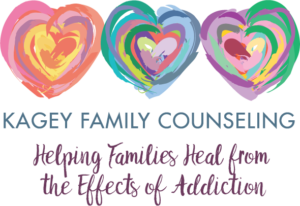There Are Many Paths to Recovery
For most people who have quit drinking, the moment of their “last drink” is something they never forget. There’s usually a significant reason for why they’ve quit, and typically, they’ve experienced a marked shift in perspective that led them to stop. If you’ve thought about putting alcohol down for good, you may be curious about what changed for those who have quit drinking. What happened that they finally came to a point where they knew alcohol was no longer their friend? What shifted and caused them to decide to stop drinking for good?
We asked these questions to a few of our clients who used to drink but are now sober, and they gave us permission to share their stories with you. In our last blog post, we shared the story of one such female client,*Carrie M., whose shift in perspective about drinking was physical, emotional, and spiritual. With the help of both AA and counseling, Carrie has stayed sober for over twenty years now. In this post, we’re sharing the story of a man, *Shane T., who’s been sober for almost a year-and-a-half. Shane’s shift in perspective has been more about practicality than spirituality, and he has not attended AA as a part of his recovery. While Shane has consistently gone to alcohol counseling, his path to sobriety has been quite different than Carrie M’s.
We’re sharing both these stories with you because we believe there are many paths to recovery, and that it’s important to hear how different things have worked for different people. There’s no one right path for everyone. The honest truth is that alcohol abuse is hard to beat, and people with alcoholism are prone to relapse. That said, when you seek help rather than trying to control or quit drinking on your own, the rates of success increase significantly. Both Carrie M. and Shane T. asked for help in their own ways, and both are sober today
*Carrie and Shane’s names have been changed to protect their anonymity.
Shane T. – In His Own Words
For most of Shane’s young adult life, he was a bonafide ‘rocker’. Shane played in rock bands and his lifestyle became very much like what we imagine when we think of ‘life on the road’ in a band. It was all late nights and good times, drinking until the sun came up – or until he passed out – whichever one came first. And Shane had no problem with any of this. He never got a DUI, he was never arrested or in legal trouble of any kind, and he didn’t suffer any consequences from his drinking (that he noticed). Shane recalls:

“It all just worked. That life became who I was, and I loved it! I had a great time being a musician and getting f**ked up almost every day. Drinking just became a habit. When you’re around that stuff all the time, it becomes the norm. No one’s telling you not to drink or to slow things down. I had fun and enjoyed partying with my bandmates. We worked hard and played harder. ”
Shane said he lived this lifestyle for a long time, but eventually, the time came when he decided it was time to stop being a rocker in the band. He explains:
“When I hit my mid 30s, I told myself it was time to grow up and to get ‘a real job’. I didn’t want to be that old guy who was still playing in a band and partying when everyone knows he’s past his prime. I also met my wife around that time, and I wanted to take my relationship with her seriously. It just wasn’t going to work anymore for me to continue with partying the way I had been. So, I told myself I’d cut back drinking and that it was no big deal.”
He Couldn’t Quit on His Own
However, even though Shane had left his rock n’ roll lifestyle behind, he didn’t find it was as easy to quit his drinking habit as he thought it would be. He describes what happened:
“I tried several times to stop. I would stop for a while to prove that I could go without alcohol. But once a few weeks had passed, I was sure I could drink “normally” again, so I’d drink and would just try to cut back. I’d go out and tell myself, ‘I’ll only have a beer or two with my friends,’ but once I started, I couldn’t stop. Every time, I’d drink all night until I passed out. I was still having fun and enjoying it, but it was starting to really upset my wife. I didn’t feel good about drinking that much anymore either.
Shane said that this pattern went on for some time. He’d tell himself and his wife that he’d quit or he’d only have a few, but soon he was back to staying out all night and getting drunk whenever he started to drink. As Shane turned forty, the physical consequences of drinking also began to catch up to him, and he became worried about how his drinking was affecting his kids. He explains:

“I just started feeling like s*it when I’d drink. I was getting horrible hangovers, and I was experiencing depression after a couple days of drinking. It also became difficult for me to get motivated for my work and my family – I always did what I needed to, but it was harder and harder. I still loved the feeling of getting drunk, but the price I was paying just wasn’t worth it. Not to mention, my wife and I had kids, and I was really worried that my drinking would negatively affect them. I didn’t want my kids to get hurt or to remember me as a drunk.”
It Was Time To Ask For Help
At this point in Shane’s journey, he sincerely tried to stop drinking for good. He realized that he didn’t want to keep experiencing the physical consequences of his drinking, and he wanted to do better for his wife and kids. Shane stopped drinking for periods of time at this point and thought he was done for good (each time). But then he’d go out with a friend to have ‘one beer’ and end up getting wasted. As this pattern began to take its toll on Shane’s body, marriage, and kids, he decided to reach out for help.
Shane tried AA a couple of times, but he didn’t like the meetings and was resolute that AA wasn’t going to be the way he got (and stayed) sober. Shane didn’t want to try the other alcohol programs either, so he decided to try alcohol counseling and began seeing Linda Kagey, LCDC. Shane recalls:
“I decided to try alcohol counseling because I knew I needed someone to help me stay accountable, and I wanted someone I could talk to privately who wasn’t a part of my family. It’s worked out well for me. This is the longest I’ve ever stayed sober (approximately 15 months at the time of this post), and I feel good about that. Oddly, I think the pandemic has helped me too. I still go out and about for work, but I’m not getting together with friends at bars or going to see any bands play. That’s helped me to really break the habit of getting back into the scene and drinking. I’ve had longer periods of time without the temptation of drinking during COVID, and I’ve made a conscious decision to stay stopped this time. I can’t afford to believe the illusion that I can have only a few drinks. I can’t. I’ve never stopped after a few.”
Shane is happy with where he is today with his sobriety. He has no plans of going to a twelve step program, but he does plan to continue with counseling. Shane said he’s thriving in his career life, and his wife and kids definitely like it better now that he’s never out drinking.
Can You Relate?
We’ve shared Shane’s story with you here because sometimes it helps to hear what led someone else to quit if you’ve been struggling to quit yourself. Maybe his story sounds familiar to you or you can relate to parts of what led him to quit drinking. Or you might have experienced the exact same things Shane did. Either way, if you’ve been on the fence, sometimes hearing a real person’s story can help you decide to go in one direction or the other.
If You’re Ready To Quit Drinking…
Wherever you find yourself today – the only person who can decide if you’re ready to stop drinking is you. If you’ve tried to stop drinking or you think you may be an alcoholic- quitting on your own is almost impossible – no matter how many reasons you have to stop. Despite all of the reasons Shane had to quit drinking, he just wasn’t able to stay stopped on his own. He had tried. And tried. But he always found himself drinking again. It wasn’t until he reached out for professional help that he had the kind of support he needed to quit for good.
If drinking has stopped being fun for you and/or it’s started to cause a lot of damage in your life, it may be time to seek help. If you think you may be an alcoholic, and you’re willing to get help, there are many resources available.
Obviously, the most well known resource is Alcoholics Anonymous (AA). And while AA doesn’t work for everyone, it is an incredible program and a great resource to try if you’re willing to. We’ve posted a recent blog about how to access Houston AA meetings during COVID, since many meetings have moved online. If you are outside the Houston area (anywhere else in the USA or around the globe), the AA website can provide you with support and lists of meetings for where you live.
If you don’t want to try AA or AA isn’t for you, you can try other programs such as: SMART Recovery, LifeRing Secular Recovery, Women for Sobriety (WFS), Secular Organizations for Sobriety (SOS), or Moderation Management (MM).
We’re Here to Help You
At Kagey Family Counseling, we are dedicated to supporting you with all aspects of recovery from alcoholism and addiction. We offer a full range of counseling services for those who are struggling with substance abuse and for the family members who love them. We also offer options for those who need, or are looking for, a more structured program of support. These options include our Intensive Outpatient Program (IOP) and a Partial Hospitalization Program (PHP) (Most major insurance plans are accepted for our IOP and PHP).
We invite you to call us at 832-928-0211 with any questions you may have or for a free 15-minute consultation. This is a hard time for everyone. You’re not alone.
Share this Story and Engage with us on Social!


